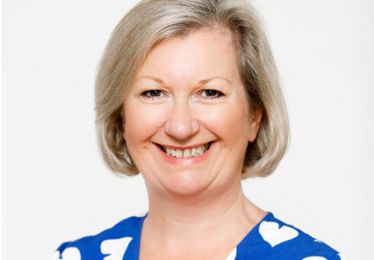Company Profiles
Mind The Gap: UK's Monument's Play For Mass-Affluent Clients

A number of "neo-banks" or "challenger banks" have sprung up in the UK, some of them focusing on the retail and business sectors. We talk to a bank that is concentrating on mass-affluent clients.
There’s a major gap in the UK’s banking market: the mass-affluent
segment.
As firms have either focused on digitally-driven retail models or
chased ultra-wealthy clients, the opportunities for those
somewhere in the middle have been mostly overlooked, so a new
entrant into the industry argues.
“That [mass-affluent] segment has been watered down,” Ian Rand,
chief executive of Monument, told this news
service in a recent interview. “Our view is that we can do better
than this.”
There are, Rand said, about five million UK people who have
trillions in wealth but aren’t quite at the level to be onboarded
into private banks.
Monument aims to change the game and a lot of that involves
technology. A “neo-bank,” the firm specialises in catering
for those wanting to finance buy-to-let residential/commercial
investments and who own between £500,000 ($648,385) and £50
million-worth of property each. In terms of gross mortgage
lending, £30 billion will need to be refinanced in the next year
according to UK Finance (1), Rand said.
Monument intends to provide solutions for borrowers who have
idiosyncratic collateral – such as an office sitting under a
residential block – or the kind that won’t necessarily be liked
by more rule-driven lenders at the established large banks. In an
environment of rising UK interest rates, such considerations have
urgency.
Getting its Financial
Conduct Authority clearance in November 2021, Monument has
launched a range of services since then. In January this year,
Dubai Investments PJSC, the investment company listed on the
Dubai Financial Market, bought a 9 per cent equity stake in
Monument Bank. The firm said that an important element of
its property investment lending and range of savings
products is its advanced “in-app capabilities.” Tech is
a big part of the equation.
Rand comes to the conversation with plenty of experience, as do
his senior colleagues. He has worked in finance for over 20
years, most recently leading business banking at Barclays. The
founder and head of global institutional relationships, Mintoo
Bhandari, worked for almost 12 years at Apollo Global Management
as a senior partner and managing director, working in New York,
London and then setting the firm up in India. Bhandari has also
worked at large university endowments (Harvard University, for
example,) as an investor and served on the boards of more than 20
companies across three continents. Wasim Khouri, who is chief
commercial officer, spent most of his career at McKinsey before
joining Monument.
Most recently, Craig Blackburn was appointed chief of staff in
April this year. A former Royal Navy officer, he has worked at
Estel Property Group Limited as COO. Yesterday, Monument said
regulators had approved Fiona Pollard as successor to Niall
Booker as chair of the firm. Pollard has been an independent
non-executive director of the bank since September 2019 and
chairs its remuneration and nomination committee.

Fiona Pollard
Mass-affluent
The “neo-bank” or “challenger bank” segment has seen a few new
entrants, with some, such as Revolut or Starling going after the
retail market. Monument is more of a mass-affluent shop. Another
in the UK is Pennyworth Financial, which also operates via apps.
(The latter firm’s CEO and co-founder, Jeremy Takle, also
has a background at Barclays.) Pennyworth is applying to be
authorised in the UK, as of the time of writing.
The term "mass-affluent" can be fuzzy. Accenture has suggested
that they are members of the middle classes who have between
£100,000 and £1 million of investable assets, with around
six million households in the UK falling into this category
(source: S&P Global, October 2020). Another group, the
management consultancy Sia Partners categorises them as those
with €50,000 ($55,686) to €1 million in liquid assets. There is a
lot at stake. Deloitte (source: S&P Global) estimates that
mass-affluent customers can make up 80 per cent or more of the
net income generated by retail banks.
It is not just the UK where there is a complaint about an
underserved mass-affluent market. According to this
commentary, the Asia-Pacific region has a problem. With a 9.6
per cent annual CAGR, the mass-affluent segment has already
outpaced its high net worth counterparts. In Asia, this asset
pool is predominantly held in cash positions, and over a third of
this pool is not receiving any active wealth management
advice.
Pillars
Talking about the three main elements of Monument’s business,
Rand referred to the banking side (as in the aforementioned
buy-to-let area), lifestyle, and technology.
Starting with the property lending side, Rand said established
banks “do what they do really well” but tend to avoid the more
complex areas. “We trade complexity for yield,” he said, noting
that among traditional banks, they often have simple rules such
as limits on lending on small floor space sizes, even in
high-quality properties.
On the deposit side, Monument has developed apps, that are “very
scalable” – in Rand’s words – for the business. His colleague
Wasim Khouri (see above) told WealthBriefing that the
ease of its savings products was a differentiator, for example.
In March last year, Monument launched via an app a 12-month,
two-year and five-year fixed-term deposit and easy access savings
products. The launch followed the release of its app and entry
into the savings market in December 2021. Monument’s custom
cloud-based architecture has allowed the bank to rapidly update
savings products almost instantly without disrupting the client
experience. The bank has used the architecture to change its
savings products quickly and efficiently more than eight times in
the last eight weeks alone.
The rollout of products and services continues. In February this
year Monument launched its Lifestyle proposition, also available
via their app and pitched at professionals and entrepreneurs to
help realise their financial, personal, and professional
ambitions while maximising their spare time. The proposition
covers more than 35 services across lifestyle, health, wellbeing,
career development and beyond. Partners include Bupa, Tablet
Hotels (part of the Michelin Group), DTB Sports & Events,
KPMG, Fine Foods Specialist, Farewill, The Real Flower Company,
Laundryheap, Imperial College Business School, Virginia Hayward,
House of Townend, USPAAH, Cavendish Health, Figtree, Bonas
MacFarlane, Black Brick, Sama, Singulart, TLT LLP, Lubbock Fine,
EMW Wealth, and others.
With so much ferment in the Western banking sector, as seen by
the recent failings and takeovers of lenders such as Silicon
Valley Bank and Credit Suisse, industry consolidation, and the
furore about “de-banking,” there’s plainly a market for new
offerings without legacy issues and costs. It will be interesting
to witness Monument's journey and assess its success in this
evolving market.